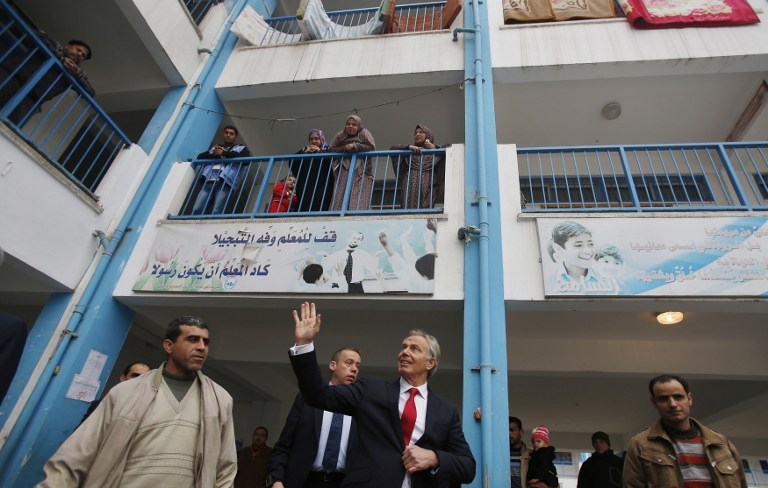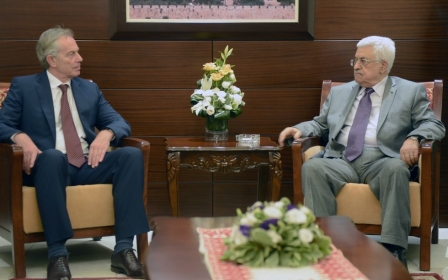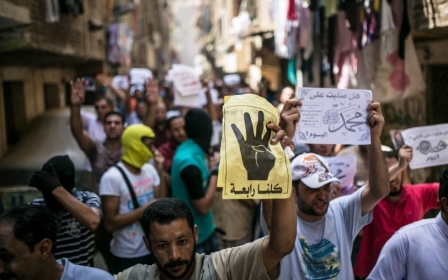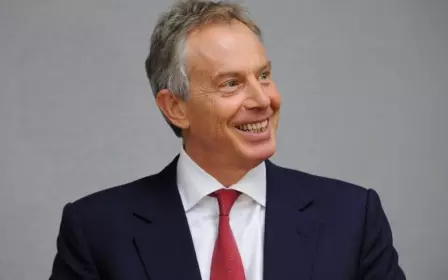Blair must choose between millions and peace

Can there be anyone who is surprised by the latest revelations that former British Prime Minister Tony Blair has been pitching for $45m to advise the United Arab Emirates? It was only last month that it was revealed in the Guardian that Blair is now being paid to advise the Serbian Prime Minister, just 16 years after he was involved in the bombing of Belgrade. Apparently, this contract was also funded by the UAE.
His business network increasingly has a scale of imperial grandeur. A pitch document reveals that his company, Tony Blair Associates, works in some 25 countries, around half of which are in Africa. If you add those states where his Faith Foundation operates, the figure rises to an impressive 50. We also discover that as of September 2014, the date of the document, Blair has offers to work in 10 more states.
All of this makes his boast that there is “virtually nowhere in the world right now where we could not work or provide the necessary contacts either politically or commercially” appear distinctly credible. For sure a three-term British Prime Minister may well have something to offer to states including the UAE, even though the pitch document is frankly an indecipherable mess of business-speak and jargon such as "We can help create networks of connection that capitalise on such interest."
One can but admire Blair’s Herculean efforts to drive this one-man business brand. After all, few former leaders have done it better.
But Blair has always been a man beset by conflicts and conflicts of interest. He is, of course, still the Quartet envoy to the Palestinians, charged with helping them to develop their economy and institutions.
To keep this role, Blair should have to answer the following:
Can he commit the required time and energy to the role, given all of his ever-increasing commitments elsewhere? Can he work for a Middle East government and advise others whilst being seen to be truly impartial? When he meets UAE ministers, can he push for donations to help Palestinians with the same zest that he uses to pursue his own business? Can he comment in the media on regional conflicts such as Syria, Iraq and Libya, calling for intervention in all three cases whilst maintaining trust with the Palestinians? Does he adopt the UAE’s views on all of these issues? Will he declare in full all of his business interests so that a proper, impartial assessment of any conflicts of interest can be made?
One of those conflicting interests is Egypt. According to reports, Blair is party to a UAE-funded contract to advise the Egyptian government. Yet Egypt is directly and on a daily basis involved in the Palestinian conflict. It is an active participant in the blockade of Gaza. When Blair goes to see President Sisi, it is never clear if he goes to talk politics or to talk business, to promote Egyptian business or Palestinian business. What comes first?
He has had this quartet role pretty much since the day he stood down as Prime Minister in June 2007, a parting thank-you from President George W Bush. It is an unpaid role with a huge expense bill. The question is, can he fulfil all these roles: the diplomat, the businessman, the media commentator and the faith promoter?
Blair himself has, even as prime minister, always asserted the centrality of the Palestinian issue in the Middle East. Listen to any speech he makes and he argues just how vital it is to resolve it. Logic dictates then that Blair would devote serious efforts to this.
So is this possible? His office will tell you that he has travelled to the Palestinian territories - the word occupied is rarely mentioned - over 100 times in this role.
How about the state of the Palestinian economy and institutions? The reality is that Palestinians are still largely aid-dependent, unable to trade and travel freely.
Tony Blair says that “Gaza is a metaphor for all that is wrong”. Palestinians in Gaza say the same about Tony Blair. The envoy has just found time in his busy schedule to visit the overcrowded, blockaded strip, it appears only for the third time since he has held the role (security is cited as the main obstacle).
Palestinians see a politician who has not spoken out for them, has not demanded an end to the blockade and to the occupation. Palestinian leaders were furious that Blair lobbied against recognition of Palestine at the UN. At best, Blair has got a few checkpoints removed in the West Bank.
As Blair globetrots from presidents to prime ministers, it sticks in the craw of Palestinians. He gains entree to the global elite as the Quartet envoy. He refreshes his black book of contacts, which he can then proceed to benefit from in his businesses. The envoy role gives him access, and access gives him contracts.
Imagine how Palestinians in Gaza feel, freezing to death, barely able to feed their children and drinking water not even fit for animals, when they see Blair failing to speak up for them but morphing into a 21st Century Croesus at their expense.
For years, I have been asking a question. How does a man working jointly for the UN, the EU, the US and Russia lose his job? Is it Ban Ki Moon who holds him to account? Who does he answer to? If all parties have to agree, then Blair probably has a role for life. The US State Department, as one senior US official told me recently, still sees him as “Saint Anthony”. The respect in which Blair is held in the Washington beltway can be gauged by the decision of Save the Children in the US to award Blair, the bomber of Baghdad, with its global legacy award last November.
Following his February Gaza visit, Blair wrote that “20 years after Oslo we need a new approach to Gaza and a new approach to peace”. Sherlock Holmes at his finest. But can someone about to mark eight years in his Palestine role seriously believe he can help birth a new approach? Does he have fresh ideas that he has been holding back all this time?
This shallow charade has to end. Blair has nothing new to add. He is a status quo figure at a time when the status quo is a disaster. Let us find someone who puts peace before dollars.
- Chris Doyle is the director of Council for Arab-British Understanding. As the lead spokesperson for CAABU and as an expert on the region, he is a frequent commentator on TV and radio and gives numerous talks around the country on issues such as the Arab Spring, Libya, Syria, Palestine, Iraq, Islamophobia and the Arabs in Britain.
The views expressed in this article belong to the author and do not necessarily reflect the editorial policy of Middle East Eye.
Photo credit: Middle East Quartet envoy Tony Blair waves last month as he leaves a UN-run school in Gaza City sheltering Palestinians, whose houses were destroyed by Israeli shelling during the 50-day war last summer (AFP)
New MEE newsletter: Jerusalem Dispatch
Sign up to get the latest insights and analysis on Israel-Palestine, alongside Turkey Unpacked and other MEE newsletters
Middle East Eye delivers independent and unrivalled coverage and analysis of the Middle East, North Africa and beyond. To learn more about republishing this content and the associated fees, please fill out this form. More about MEE can be found here.





